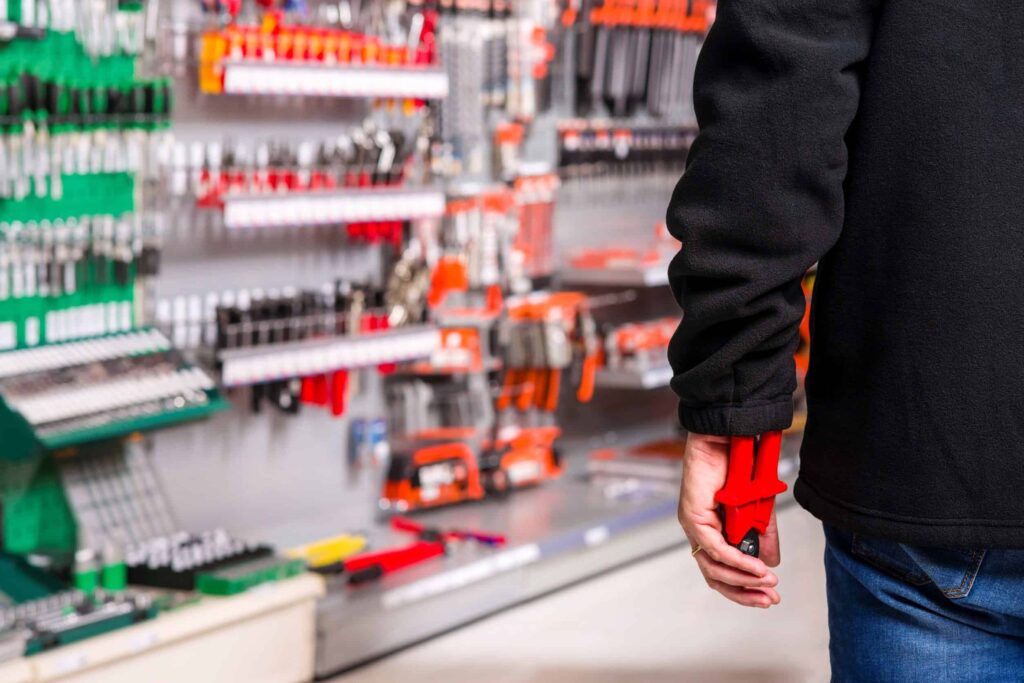Beat Your Denver DUI Charges with Effective Defense Strategies
July 17, 2024

The Different Types of Domestic Violence Protective Orders
As of Today, You’d Still Be a Sex Offender
Posted by: Jacob E. Martinez
Category: Shoplifting
When they find themselves face-to-face with authority figures, people will often back themselves into corners by immediately surrendering rights that they don’t realize they have. This is common in situations like drug busts or speeding citations, but it can also apply at other times as well, such as when an individual is accused of shoplifting.
Even though shoplifting may seem like a relatively minor crime, it can be more serious than many people realize, and you need someone experienced on your side. For individuals accused of the crime, the detainment process can be extremely jarring. If you’ve been accused of shoplifting, there are a few things that you should know.
Many young people view shoplifting as a relatively minor crime, probably because most shoplifting crimes are classified as misdemeanors. However, shoplifting is a type of theft crime, and like all crimes, it can come with with severe consequences.
While a lot of people think of shoplifting as simply slipping some nail polish into their pockets and leaving the store, this is only one kind of example. For instance:
Even the most minor consequences for shoplifting in Colorado can be incredibly severe. For minor theft of items worth less than $500, you could be facing fines between $250 and $1,000 and between three to 12 months in jail. On the other hand, if the stolen merchandise is worth more than $2,000, you could be facing between four and 12 years in jail and fines between $3,000 and $750,000.
Of course, there are degrees of punishment between these two extremes as well. The important thing to take away is that the consequences for shoplifting can range from inconvenient to life-ruining, but no matter their degree of severity, they will always result in a mark on your permanent record, which can seriously complicate your life even years from now.
First, understand that your constitutional rights are inalienable—meaning they cannot be taken from you or denied at any point. Even though security guards are not required to read you your Miranda rights before detaining you, rest assured, your rights are still valid.
You still have the right to remain silent so as not to incriminate yourself, and if you ask to speak with a lawyer, you have the right to one. Before getting into any potentially sticky situation, make sure that you know your rights so that you will be able to protect yourself against unfair accusations.
Secondly, security guards do have the authority to detain you if they suspect that you have shoplifted. If you’re detained as a result of suspected shoplifting, here is what you need to know about the security guards’ authority:
As you can see, the detainment process that follows shoplifting accusations can be complicated, since so much depends on what a security guard deems “reasonable.” As long as a security guard can argue that his actions were “within reason,” he or she has the right to detain a person and will be able to try to make a convincing argument to cops and others if the matter goes to court.
Luckily, an experienced lawyer will be able to help protect you from these accusations. No matter how seemingly minor your crime was, it’s worth consulting with a knowledgeable theft crimes lawyer to ensure that your name and your record stay clear. If you’ve been unreasonably detained for shoplifting, defend yourself. Speak to an shoplifting attorney with a track record of success to get the guidance and support that you deserve.
About the Author:
Denver-based criminal defense and DUI attorney Jacob E. Martinez is a knowledgeable and experienced litigator with a record of success providing innovative solutions to clients facing criminal charges of any severity. Mr. Martinez has been designated a Top 100 Trial Lawyer by the National Trial Lawyers and has been awarded both the Avvo Client’s Choice Award and Avvo Top Attorney designation, evidencing his reputation for his exemplary criminal and DUI defense work and high moral standards.
Jury Trial - Not Guilty
Jury Trial - Not Guilty
Arapahoe 1st Degree Assault/Vehicular Assault
Jury Trial - Not Guilty
Denver Domestic Violence Assault Case
Jury Trial - Not Guilty
Denver D.V. Assault
Jury Trial - Not Guilty
Denver Careless Driving Resulting in Death
Jury Trial - Not Guilty
Jefferson County Felony Menacing
Jury Trial - Not Guilty
Adams County DUI
Jury Trial - Not Guilty
Jefferson County DUI
Jury Trial - Not Guilty
Jefferson County DUI
Jury Trial - Not Guilty
Jefferson Vehicular Assault/DUI
Jury Trial - Not Guilty
Jefferson County DUI
Jury Trial - Not Guilty
Boulder County DUI case
Jury Trial - Not Guilty
Arapahoe County DUI case
Jury Trial - Not Guilty
Adams County DUI case
Jury Trial - Not Guilty
Douglas County DUI case
Jury Trial - Not Guilty
Gilpin County DUI case
Dismissed
Broomfield County Probation Revocation case
Dismissal
Arapahoe County DUI case
Deferred Judgment
Arapahoe County DUI case
Deferred Judgment
Douglas County DUI case
Deferred Judgment
Larimer County DUI case
Deferred Judgment
Arapahoe County DUI Case
Deferred Judgment
Denver Felony Burglary Case
Deferred Judgment
Arapahoe County DUI case
Dismissed
Arapahoe County Protection Order Case
Dismissed
Golden Destruction of Property case
Dismissed
Jefferson County Protection Order case
Dismissed
Jefferson County Domestic Violence case
Dismissed and Sealed
Jefferson County DUI case
Dismissed
Denver Major Traffic Offense case
Dismissed and Sealed
Broomfield County Domestic Violence case
Dismissed
Summit County DUI Revocation
Dismissed
Denver DUI Revocation
Dismissed
Denver DUI Revocation
Dismissed
Denver DUI +.2 Involving Accident and Injury case
Dismissed
Denver DUI/Habitual Traffic Offender case
DISMISSAL
Denver District Aggravated Theft
Dismissed
Greenwood Village Assault case
Dismissal
Elbert County DUI
Dismissed
Arapahoe County Domestic Violence case
Dismissal
Jefferson County DUI
Dismissal
Denver Municipal Assault
Dismissed
Boulder County Domestic Violence Assault case
Dismissed
Wheat Ridge Assault case
Dismissed
Jefferson County DUI case, with 2+ Prior Convictions
Dismissed
Arapahoe County Domestic Violence case
Dismissed
Broomfield County Domestic Violence case
Dismissed
Arapahoe County Felony Theft case
Dismissed with No Charges Filed
Jefferson County Felony Theft case
Dismissed
Boulder County Felony Theft case


